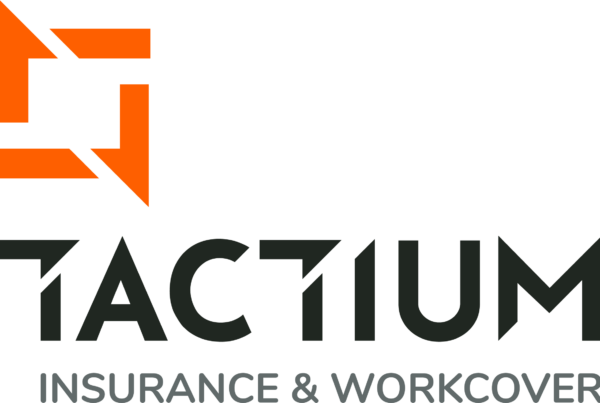The Victorian WorkCover Authority (VWA) is also known by their trading name WorkSafe Victoria. They are the state government agency who regulates and underwrites the Victorian workers compensation scheme. WorkSafe has appointed five agents to administer premium- and claims-related matters on their behalf. These are Allianz, CGU, Employers Mutual Limited (EML), Gallagher Bassett (GB) and Xchanging. When you applied for WorkCover insurance, you would have chosen one of these companies. Since then, you may have moved your policy to another agent, either by choice or at the behest of WorkSafe.
Agent or insurer? What’s the difference?
In Victoria, there is only one insurer for WorkCover purposes: WorkSafe. They set the rules and they underwrite the scheme using funds collected from employers’ premiums.
The five companies referred to above are not WorkCover insurers, they are agents of WorkSafe. They administer claims and premium matters on behalf of WorkSafe in accordance with legislation.
Still, often the WorkSafe agent is referred to as ‘the insurer’. But don’t make the mistake of thinking your WorkSafe agent is an insurer, because they are not. I’m inclined to remove any reference to ‘insurers’ from the rhetoric of WorkCover. You should more accurately refer to these companies as WorkSafe agents, not insurers.
WorkSafe’s five-year license
WorkSafe agents apply for a five-year licence to operate in Victoria. Agents risk a licence denial if they have failed to meet WorkSafe’s performance expectations, so the process of renewing these licences causes a lot of anxiety. Each agent’s employees wait to find out if their tender has been successful and if they all still have jobs. The outcome can’t be predicted with any certainty, as the review process and results are top-secret.
In 2016, QBE lost their WorkSafe licence. It surprised me at the time that this wasn’t major breaking news. Hundreds of QBE staff faced the possibility of redundancy or redeployment. Thousands of employers and injured workers faced disruption.
During the same tender process, EML entered the scheme, effectively replacing QBE. WorkSafe allocated most of QBE’s portfolio to EML and some to Xchanging. The employers who were with QBE had no say in which agent would receive them. And once assigned, they couldn’t shift their policy for six months. Many employers reported disruption as a result.
What happens when you change agents?
As I stated at the start of this article, the WorkCover scheme is underwritten by WorkSafe. This means that when you pay your WorkCover premium, that money goes to WorkSafe, not your WorkSafe agent. So changing WorkSafe agents won’t get you a better rate, nor will it improve your coverage. But you will get a different person on the other end of the phone, different service standards, and possibly some other value-added offerings.
Am I the customer?
Typically, when customers are dissatisfied with a service provider, they will take their business elsewhere.
If you’re frustrated with the performance of your WorkSafe agent, you might threaten to change providers to get what you want. But be aware that they can’t compromise their agreement with WorkSafe to keep you happy. And they can’t change the legislation. I can promise you that your agent will survive losing your business, but they won’t survive losing their contract with WorkSafe.
If the agent hopes to succeed, they must meet WorkSafe’s expectations.
Your business is undoubtedly a customer of the agent, but I would argue WorkSafe is their primary customer.
The real reason your agent is not meeting your expectations
WorkSafe agents, in particular their case managers, have the unenviable challenge of simultaneously fulfilling the roles of administrator, strategist, counsellor and enforcer, all while trying to keep you happy and retain your business. Many employers unfairly expect their WorkSafe agent to meet their every demand and deliver unrealistic outcomes on their claims. Yet WorkSafe expects your agent to give the same standard of advice to your injured worker as they do to you.
So is it fair or realistic to demand that your WorkSafe agent prioritise your needs to the detriment of your injured worker? WorkSafe would surely disapprove.
Moving forward
Don’t get angry or frustrated about this set of relationships. Understand it for what it is. Don’t blame your WorkSafe agent if you’re not getting the outcomes you need. Start getting your head around how the system works.
I consider WorkCover insurance to be similar to taxation. Would you rely solely on the ATO’s administration branch for advice on all matters relating to your tax obligations? Sure, that staff member you’re talking to over the phone won’t give you false information. But can that person fully understand your circumstances? Can they actively drive you towards the best possible outcome for your business while ensuring compliance? Can they dedicate the necessary time and resources to your needs? I’m pretty confident that the answer to all of these questions is ‘No’. You probably have an accountant, bookkeeper or CFO specialising in taxation who is your trusted advisor.
So, remembering that WorkSafe agents are not insurers, should you rely on these third-party administrators when formulating your business strategy regarding your WorkCover premium and claims? Again, I’m confident the answer is ‘No’. At the very least, you probably shouldn’t solely rely on them. Your WorkSafe agent serves a variety of stakeholders, including your injured workers. They must remain unbiased for the most part. Your interactions with the agent will be on the record, so the government regulator can check they are treating each stakeholder (injured worker and employer) fairly.
Your WorkSafe agent can offer accurate advice in relation to legislation, but it’s not fair or reasonable for you to expect them to be accountable for your outcomes. As a senior decision-maker in business, this information is your motivation to step up and take direct responsibility for your WorkCover claims and premium situation, and stop blaming your agent for your shortcomings.




